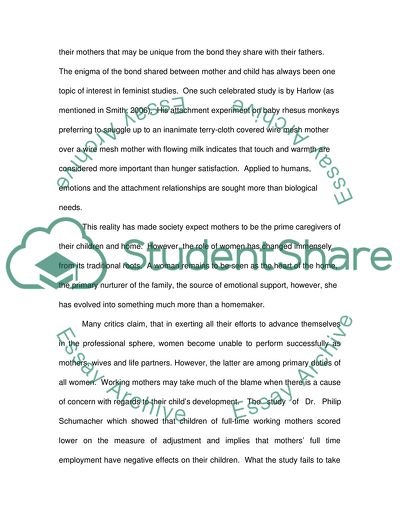Cite this document
(The Effects of Mothers Working Outside the Home on their Children Assignment Example | Topics and Well Written Essays - 1500 words, n.d.)
The Effects of Mothers Working Outside the Home on their Children Assignment Example | Topics and Well Written Essays - 1500 words. https://studentshare.org/gender-sexual-studies/1711516-activity1-women-psy
The Effects of Mothers Working Outside the Home on their Children Assignment Example | Topics and Well Written Essays - 1500 words. https://studentshare.org/gender-sexual-studies/1711516-activity1-women-psy
(The Effects of Mothers Working Outside the Home on Their Children Assignment Example | Topics and Well Written Essays - 1500 Words)
The Effects of Mothers Working Outside the Home on Their Children Assignment Example | Topics and Well Written Essays - 1500 Words. https://studentshare.org/gender-sexual-studies/1711516-activity1-women-psy.
The Effects of Mothers Working Outside the Home on Their Children Assignment Example | Topics and Well Written Essays - 1500 Words. https://studentshare.org/gender-sexual-studies/1711516-activity1-women-psy.
“The Effects of Mothers Working Outside the Home on Their Children Assignment Example | Topics and Well Written Essays - 1500 Words”. https://studentshare.org/gender-sexual-studies/1711516-activity1-women-psy.


